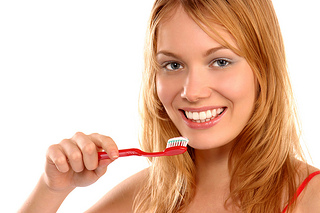Fewer Adults are Visiting the Dentist
January 26th, 2016

Our team at Pioneer Dental recently learned that in the decade between 2000 and 2010, the amount of adults who regularly visited their dentist declined, according to research released by the American Dental Association's Health Policy Resources Center (HPRC). In fact, the HPRC found that the percentage of adults who had regular checkups every six months declined from 41 percent in 2003 to 37 percent in 2010. The largest decline in dental care occurred in the 35- to 49-year-old age group. That’s down from 43 percent in 2003 to just 38 percent in 2010.
There is some good news, however. While adult visits may have decreased, children's visits were on the rise, particularly among low-income families. More low-income children are visiting the dentist now than they were ten years ago. And the HPRC notes that between 2000 and 2010, dental visits among low-income children increased in 47 states.
Have you ever wondered why the American Dental Association and Dr. Carl Meyers recommend that you come in for a dental checkup and cleaning every six months? While daily oral hygiene habits are essential to good oral health, professional dental cleanings at Pioneer Dental ensure your and your child’s teeth are treated to a deeper level of cleaning. In addition to a thorough cleaning and teeth polishing, regular visits at our West Bend, WI office help us detect and prevent the onset of tooth decay and periodontal (gum) disease. During your visit, we’ll check the health of your mouth, teeth, gums, cheeks, and tongue for symptoms of any oral disease. We will also check old fillings and restorations, as these can wear away over time from constant chewing, clenching, or grinding at night.
If you are predisposed to oral diseases due to age, pregnancy, tobacco use, or medical conditions such as diabetes or dry mouth, Dr. Carl Meyers may recommend you visit our office more often than every six months.
If you are overdue for your next checkup and cleaning, please give us a call to schedule an appointment!






